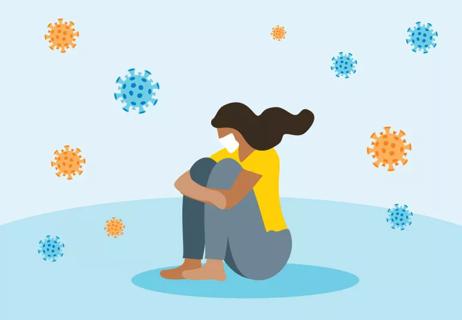While it typically starts in October, vaccine effectiveness can affect its duration and severity

Lazy late summer days will soon give way to cool autumn nights. This means flu season is around the corner, too. The flu, or influenza, is a viral infection that attacks your nose, throat and lungs.
Advertisement
Cleveland Clinic is a non-profit academic medical center. Advertising on our site helps support our mission. We do not endorse non-Cleveland Clinic products or services. Policy
So, when exactly is flu season? And when does flu season start?
In the U.S., flu season can start as early as October. But sometimes, it doesn’t rear its head until January or February.
Infectious disease specialist Kristin Englund, MD, explains how we can predict the start of flu season.
To get an idea of how heavy or light our flu season will be, we look to patterns in the Southern Hemisphere. And it’s why experts are foreseeing a flu season with more cases this year.
“We often use Australia as a way to predict what we’re going to have because they’re kind of a season ahead of us,” Dr. Englund explains. “This year, they’ve seen a rise in the number of cases of influenza. And we are certainly going to see a significant rise in the number of cases of influenza this year as well.”
When it comes to last year’s flu season in the U.S., the U.S. Centers for Disease Control and Prevention (CDC) estimates that from October 1, 2022 through April 30, 2023, there were 27 million to 54 million flu illnesses, with 300,000 to 650,000 flu hospitalizations — and 19,000 to 58,000 deaths related to the flu.
As for what to expect this year? Dr. Englund says flu season won’t be as light as it was a few years ago.
Advertisement
There are reported cases of the flu in the U.S. year-round. But when it comes to flu season, the CDC says flu cases typically start to rise in October and peak between December and February. In some years, flu season months may extend into May.
“Influenza A season usually ends around March, but that is when we can see influenza B rising, so the flu season is usually around until April or May,” says Dr. Englund. “You can check out actual numbers of flu cases on your local health department’s website.”
No, says Dr. Englund. Think of the last few years and how other viruses like COVID-19 and respiratory syncytial virus (RSV) affected flu season.
“During the height of COVID, when people were limiting contact and gatherings, flu cases dropped as well — since both viruses spread in similar ways," she says.
With the introduction of the COVID-19 vaccines and the lifting of mask requirements, people started going out more. This shifted the following year’s flu season, when we saw more cases of RSV.
Other factors like the kind of circulating strain of influenza, timing of flu season, how well the flu vaccine works and how many people get the flu shot can all play a role in how the flu season will unfold.
Even in lighter flu seasons, the virus can cause serious illness — especially in young children, older adults, pregnant women and people with chronic conditions. Getting a flu shot, practicing good handwashing and staying home when sick are simple steps that can lower your risk and help protect those around you.
Advertisement
Learn more about our editorial process.
Advertisement

They can feel similar, but the differences matter — especially if you’re at higher risk for complications

From washing your hands and disinfecting surfaces to boosting your immune health, there are many ways to reduce your flu risk

The two main strains of the flu have a lot in common, but type A causes more cases and more severe illness than type B

Pasteurized milk is considered safe, but there are concerns about avian influenza spreading through raw, unpasteurized milk

The flu can make kids seriously sick, so watch for signs of dehydration and breathing problems

Tamiflu can shorten your child’s illness and even help prevent the flu

You may be spreading the flu virus before your symptoms start and up to a week after

Influenza puts stress on your body and can lead to serious conditions like pneumonia or stroke

Wearing a scarf, adjusting your outdoor activities and following your asthma treatment plan can help limit breathing problems

Your diet in the weeks, days and hours ahead of your race can power you to the finish line

When someone guilt trips you, they’re using emotionally manipulative behavior to try to get you to act a certain way